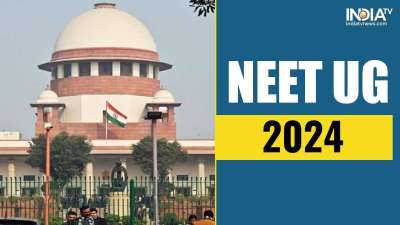
Detailed Analysis of NEET-PG 2024 Exam Postponement Plea in Supreme Court
The National Eligibility cum Entrance Test for Postgraduate (NEET-PG) 2024, scheduled for August 11, 2024, has become the center of a significant legal battle as students have petitioned the Supreme Court of India to postpone the exam. The crux of the petition revolves around concerns related to the allocation of exam centers and the normalization process, which has created an environment of uncertainty and stress for a large number of candidates.
Background of the NEET-PG 2024 Exam
NEET-PG is a highly competitive exam that determines admissions to postgraduate medical courses in India. Given its importance, the exam is a major event for aspiring doctors across the country. The stakes are high, with over two lakh candidates expected to appear for the 2024 exam. These candidates are vying for limited seats in various medical colleges, making the exam one of the most critical steps in their professional careers.
The examination is set to be conducted in 185 cities across the country, with candidates being allocated specific test centers within these cities. Traditionally, candidates have been allotted centers close to their residence or within their state. However, the 2024 examination process has seen a deviation from this norm, leading to widespread discontent among the aspirants.
The Petition and Its Grounds
The petitioners, represented by Advocate Anas Tanwir, have raised several critical issues in their plea to the Supreme Court. The primary concern is the allocation of test centers in locations that are “highly inconvenient” for many candidates. According to the petition, these allocations were made on July 31, just 11 days before the exam, giving candidates insufficient time to make necessary travel arrangements. The late announcement has compounded difficulties for students who now face logistical challenges, including the non-availability of train tickets and high airfares due to dynamic pricing.
The petitioners argue that the sudden and late allocation of centers has caused significant distress, especially for those who have been assigned centers far from their place of residence. Many students, particularly from rural areas or those with financial constraints, are finding it nearly impossible to reach their designated centers on time. The petition contends that the short notice period has placed an undue burden on candidates, compromising their ability to perform well in the exam.

Concerns About the Normalization Process
Another major issue highlighted in the petition is the lack of transparency regarding the normalization process. The NEET-PG 2024 exam is set to be conducted in two batches, which has raised concerns among candidates about the fairness of the process. The petitioners are apprehensive that one batch may receive a more challenging set of questions compared to the other, potentially affecting the overall results. This concern is amplified by the fact that the normalization formula, which is supposed to ensure fairness across different batches, has not been disclosed to the candidates.
The petition calls for the normalization formula to be made public before the exam to alleviate any fears of arbitrariness. The candidates argue that without knowing the normalization process, they cannot be assured of a level playing field. The lack of transparency in such a critical aspect of the examination process has led to widespread anxiety among the aspirants, who fear that their future prospects could be unfairly jeopardized.
Legal Arguments and Precedents
The petitioners have also invoked legal precedents to support their case. They argue that the allocation of centers and the normalization process must adhere to principles of natural justice, ensuring that all candidates are treated equitably. The petitioners have cited previous cases where the courts have intervened in similar situations to ensure fairness in the examination process.
One of the key arguments is that the allocation of test centers and the scheduling of exams should not place an undue burden on candidates. The petitioners contend that the current situation violates their right to a fair examination process, as guaranteed under the Constitution of India. They argue that the authorities should have considered the logistical challenges faced by candidates before finalizing the test centers.
The petition also refers to the principle of “non-arbitrariness,” which is a cornerstone of Indian administrative law. The petitioners assert that the authorities’ decision to allocate centers far from candidates’ residences, without adequate notice, is arbitrary and lacks justification. They argue that such decisions should be made with a view to minimizing inconvenience to candidates, especially in an exam as crucial as NEET-PG.
Supreme Court’s Response and Implications
In response to the petition, the Supreme Court, led by Chief Justice of India DY Chandrachud, has agreed to hear the matter on August 9, 2024. The court’s decision in this case will have significant implications not only for the NEET-PG 2024 exam but also for the broader framework of how competitive exams are conducted in India.
If the court rules in favor of the petitioners and orders a postponement of the exam, it would provide much-needed relief to the candidates who are currently struggling with the logistical challenges. It would also set a precedent for how exam authorities should handle the allocation of test centers in the future, ensuring that candidates are not placed in a disadvantageous position.
On the other hand, if the court decides not to postpone the exam, it would underscore the importance of adhering to the scheduled timelines, despite the challenges faced by the candidates. In such a scenario, the court may direct the authorities to take corrective measures to address the candidates’ concerns, such as providing additional support for travel arrangements or ensuring greater transparency in the normalization process.
Conclusion
The NEET-PG 2024 postponement plea highlights the broader issues of fairness, transparency, and the rights of candidates in competitive examinations. As the Supreme Court prepares to hear the case, the outcome will be closely watched by students, educators, and policymakers alike. The decision will not only impact the immediate future of over two lakh candidates but will also shape the principles governing the conduct of high-stakes exams in India.
The case underscores the need for examination authorities to be more mindful of the logistical and psychological challenges faced by candidates. Ensuring a fair and transparent examination process is not just a legal requirement but also a moral obligation, especially when the future careers of young professionals are at stake. As the legal battle unfolds, the focus remains on securing justice for the candidates and upholding the integrity of the examination system.


